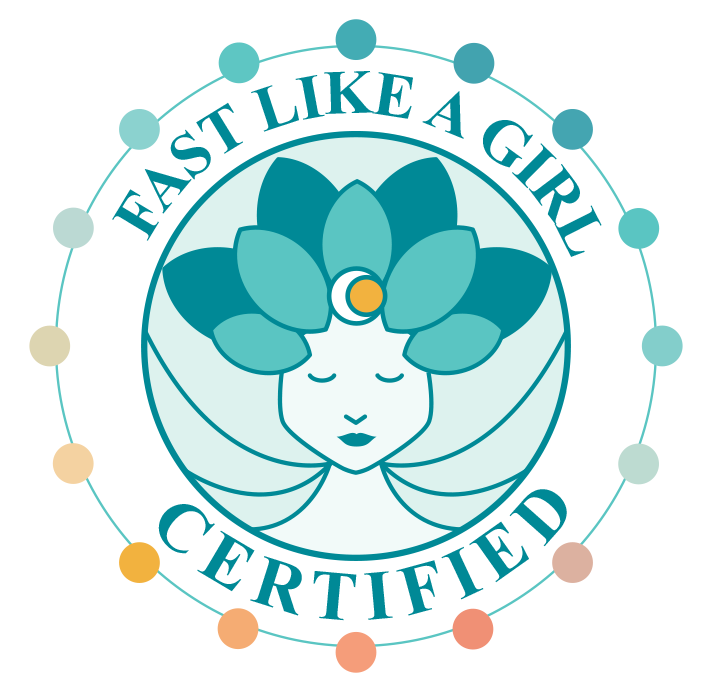Naw, we can’t get better sleep by adding in a few foods, can we?
Sure we can, with the right amounts of the right kinds of food eaten at the right time of day.
How does that work?
Plants make compounds in response to their environment. These compounds regulate insects as well as other plants around them. They also make compound to regulate the plant’s own hormones.
When we eat certain plants, these compounds as well as vitamins, minerals, carbs and protein help regulate our own hormones. Our bodies rely on phytonutrients for self-regulation just like the plants do.
After all, humans and plants evolved together – we have been eating plants for a long, long time. Our hormonal regulation systems developed in the presence of phytonutrients, and we came to depend on them.
An Example
For example, both we and plants have a daily rhythm. I watch my shamrock close its leaves at night and open them again in the morning. We both make melatonin to help regulate this daily rhythm.
When we eat foods with melatonin, not only does it increase our own supply, but it also helps us make melatonin ourselves. That’s the power of natural regulation.
Today in our society with so much stress, it may be too hard to regulate our hormones without the help of extra phytonutrients. Processed foods are devoid of these phytonutrients, so we need to get them from the real thing – plant foods.
Starting with Melatonin
Melatonin has been well studied for adjusting sleep timing and sleep onset. Like Goldilocks in the bear’s home – it cannot be too big or too small, it needs to be just right.
Too big a dose of melatonin can cause disturbed dreams and daytime fatigue. The usual dose I see is on a bottle is 2 mg, but I also see 5 and 10 mg. That upper limit is 100x the optimal dose! If you take too much melatonin, it is hard to clear before morning, blunting your morning cortisol response. During the day you can be groggy with brain fog from having too much melatonin in the bloodstream.
What is just right? Most studies suggest 50 to 100 micrograms is optimal for adults. That’s 0.05 to 0.1 milligrams. Ever see that dose on a bottle at your health food store?
Let’s see if we can find that dose in food.
Foods with Melatonin
Pistachios, cherries, kiwi and black rice head the list of foods rich in melatonin. Together they might make a nice nutty fruity pilaf! But no, you do not have to eat them all together or even in large quantities.
Let’s start with pistachios. They are highest in melatonin of any food, fungi, spice or herb. They can have up to 230 mg melatonin per gram of pistachio. I weighed that out and one gram is about two nuts!
What happens if you eat a few handfuls? Well, the amount of melatonin we make actually responds paradoxically. That means that the more we take in, the less in our blood.
This is because melatonin acts through receptors. A big surge of melatonin closes the receptors and speed up our metabolism to clear it. Higher doses are less effective for sleep, although there may be other uses for higher doses of melatonin.
Study the fruits
Studies with eating tart cherries show that they give longer sleep and better-quality sleep. Try the Montmorency variety.
Kiwis have antioxidants as well as melatonin. A study showed that participants eating 2 kiwis before bed for 4 weeks fell asleep 35% faster, awoke less often, and improved their sleep index by 40%.
Black Rice
There are three separate reasons black rice may be so helpful for sleep. First, rice in the diet has specifically been shown to help sleep.
Second, when you eat carbohydrates at night, you help to make the hormone serotonin as well as melatonin. Sleep depends on both of these hormones.
Finally, black rice is a rich source of polyphenols and a study shows the most polyphenols in the diet, the best sleep.
Don’t forget poultry
Yes, the famous tryptophan in the Thanksgiving turkey! Makes you sleepy – well, if it wasn’t for the big meal making you sleepy first.
Actually, chicken has more tryptophan than turkey, but the effect also depends on the other constituent amino acids. Chicken has more competing amino acids than turkey, so it is the turkey which may be more effective. But don’t count out chicken!
Eat poultry throughout the day for its effect on sleep, not just at bedtime.
In the body, tryptophan converts to serotonin. Some of the serotonin converts to melatonin when the time is right.
Putting it together
If you want a cookbook using these five ingredients to promote healthy sleep, I have a recommendation. Dr. Alan Christianson has just published the Hormone Healing Cookbook chock full of recipes for insomnia as well as other hormonal imbalances.
I have singled out Kiwi Chia Pudding to make if I need help to sleep. Here is the recipe for 4 servings:
Put in a blender for 1 – 2 minutes, until smooth. Refrigerate for at least one hour. Garnish with a couple of Tablespoons of chopped pistachios.
- 3 Tbs Chia seeds
- 1 cup unsweetened plant milk
- 1 Tbs maple syrup
- 1 tsp vanilla extract
- 3 kiwis, peeled and diced, making 1 cup
It Goes Without Saying
Before you start adding in these foods, be sure to find the cause if you are not sleeping well. The first place to start is to attend to sleep hygiene.
Spend early morning in the sun, and wind down at least an hour before bed by dimming lights and shutting down electronics. Before bed, lower the temperature and you may want to shut out most light and sound.
Be sure to exercise during the day. At least take a 20-minute walk in the evening to kickstart melatonin production.
Beware of caffeine consumption, even if you don’t think it keeps you up. A 3-week avoidance of caffeine will clear it from your system if you had any doubt that it affects your sleep quality.





